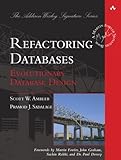I read, a lot. I’ve been a prolific reader all my adult life.
I use to split my reading between tech books and my regular relaxing reading but since I got into audio books several years ago I just pretty much read tech books now. Some times I’ll listen to a book and read a manual at the same time breaking from one or the other if I need to really focus on a particular passage.
This allows me to really chew through a large amount of text in a pretty short amount of time.
I also have a method of digesting the information as well.
When I read a large technical volume I usually do it in three passes.
First pass is a scan of the entire book marking things of immediate need or interest for detail re-read later.
Second pass is the detail look at my notes from the first pass.
Finally, I re-read the whole thing and take notes on stuff I may have skipped the first time through because I “thought” I knew about that already, or didn’t apply to my core skill sets.
I recently posted a short list of authors I always read and now I’m going to follow that up with specific texts with some notes.
Eventually, I’ll expand some of these into single book reviews, ones I’ve come back to over and over or that I found extremely interesting.
Kalen took over Inside SQL Server full time for the 2000 release and hasn’t looked back. Inside SQL Server 2000 was a must have on any book shelf. 2005 saw a shift by breaking the book into several volumes and inviting the industries best to write about the fields they were established experts in.
This time around, that theme has been carried forward and several noted experts lend a hand in this volume. SQL Server as a product is impossible for a single person to be an expert in from end to end. Even the core engine is beginning to grow to a point that just being an expert in a single aspect may be enough to establish a career.
With the inclusion of Paul Randal, Kimberly Tripp, Conor Cunningham and Adam Machanic this book is an exceptional read. The access to other experts and team members on the SQL Server team at Microsoft lend this book a level of authority that any other book like it in this space just simply cannot match.
Again, Kalen gives us a solid walk through the core engine, what has changed and how it works. I was personally happy to see Conor do his chapter over the optimizer.
Itzik is a giant in the query world. He has a grasp of the T-SQL language that few can match let alone surpass. Time and again I reach for his work to solve a problem or just to learn something new.
With this volume he has added some other note worthy people have joined in. Lubor I have known for quite a while. He is a staple figure at Microsoft and is also a big thinker.
Steve Kass long time SQL Server MVP and scary smart fellow himself adds his wealth of knowledge and his ability to communicate to this book.
I have a feeling this will become a “must have” and a classic in it’s own right.
Another Itzik book teaches you the foundations of T-SQL including previous versions of SQL Server and raps that up with the new stuff in 2008.
Never think you are too smart to read a foundation book no matter what point you are in your career. This is how you can catch new ideas, theories and techniques that “what’s new in…” books can miss.
Plus Itzik’s style and clarity may actually re-learn something you thought you already understood.
I’ve known Louis for a number of years and have read every one that I know of.
He has a down to earth conversational style that is easy to read. Also, having Kevin Kline work on this book is just icing on the cake. I have been a fan of Kevin’s work since the 7.0 days.
This book is good for someone who has been doing some design and development work and really wants to start digging in deeper. He makes no assumptions about what you do or don’t know he starts at an introductory level and walks you through what it takes to do design work and turn that into a usable physical model.
I will say he has progressed to cover more material in every new volume and this latest outing is no exception. Make no bones about it Louis works for a living. There are a lot of text that will make you feel stupid or completely inadequate to do your job but Louis makes some of the more complex problems easy to digest by putting them in real world examples.
I’ve got a lot more books in the pipeline and will be talking about them soon.
I will also be covering 2005 and even 2000 in the coming posts. I know there are some folks still on 2000 and even 7.0 but I don’t have any books save one that old on my shelf at this point.
Since I do more than just SQL Server or database work in general I’ll be covering those volumes as well and why I like them.
Lastly but not least I will also cover books I’ve read and didn’t find that helped me move my knowledge forward, not that these books were bad, they just didn’t fit me, or there was another author who covered the material that made it easier for me to understand.














